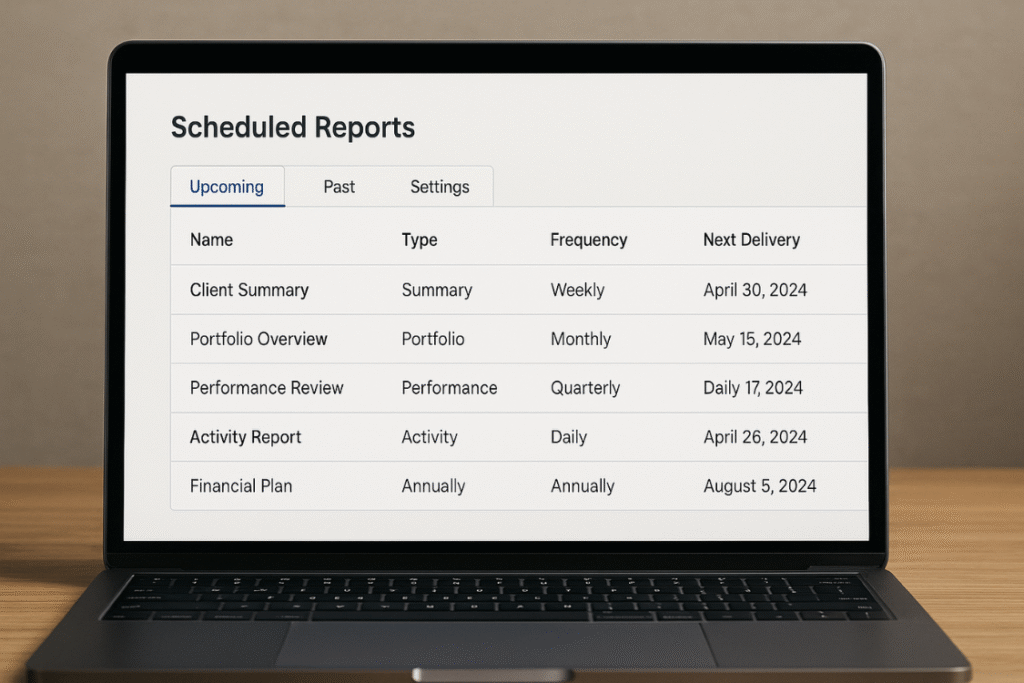What happens when a broker stops replying during a critical phase of your business sale? Deals stall, trust erodes, and mistakes slip through.
A solid business broker communication plan helps you avoid these risks by setting clear expectations early and keeping all parties aligned. You’ll need more than a few casual check-ins, especially when dealing with complex transactions, shifting market dynamics, and multiple parties involved.
This guide shows you how to align with your business broker on communication style, frequency, and tools to ensure a smooth and successful transaction from start to close.
Why Communication Can Make or Break a Deal
Strong communication is the backbone of any successful business sale. A clear, reliable connection between seller and broker prevents delays, confusion, and missed opportunities. For sellers navigating this often daunting task, setting communication standards early helps reduce risk and improve results.
How clear updates reduce stress and confusion
When a business broker shares timely updates, sellers can stay focused on their business operations without second-guessing the selling process. Updates on buyer interest, industry trends, or shifts in market dynamics help business owners make informed decisions based on real-time data. This kind of effective communication also ensures critical data, like financial statements and marketing strategies, are aligned across all parties involved, including financial advisors and real estate agents.
Avoiding long silences and uncertainty
Silence during complex transactions creates room for doubt. A professional business broker who maintains consistent communication shows accountability and helps the seller feel supported. Staying informed minimizes friction during due diligence and keeps everyone on the same page. Brokers who communicate effectively build stronger relationships, especially when multiple stakeholders are involved.
Benefits of proactive vs. reactive communication
Brokers who communicate proactively help reduce risk, improve timing, and build stronger relationships with sellers. A business broker’s communication plan built around proactive habits can make the difference between a smooth sale and a stalled deal. Here are the key benefits of working with a broker who takes the lead in communication:
- Sets expectations early in the selling process, including timelines and update frequency
- Sends regular updates on buyer activity, market dynamics, and industry news
- Helps in identifying potential buyers and screens them effectively
- Flags issues before they grow into costly problems during due diligence
- Shares real-life examples from past transactions to guide decision-making
- Uses content marketing and digital tools to attract a broad audience of qualified buyers
- Leverages connections through professional associations like the International Business Brokers Association to refer clients or expand outreach
- Demonstrates strong negotiation skills backed by data and careful planning
Proactive professionals are more likely to support smoother processes and better-prepared sellers, which can contribute to more successful transactions.

Ask: “How Often Will We Communicate, and Through Which Channels?”
Clear answers to this question help you assess how the broker plans to guide your business sale. It reveals their workflow, use of digital tools, and level of preparation (key indicators of effective communication and a solid reputation).
What does this reveal about the broker organization?
A good business broker will outline a regular update schedule and use preferred communication channels like email, phone, or Zoom. These tools are not just convenient; they’re essential for delivering timely updates, sharing documents, and maintaining alignment throughout due diligence.
Brokers who use a professional website, cloud-based platforms, and video conferencing tools create a more efficient, accessible experience for sellers. These digital methods support real-time interaction, reduce delays, and ensure critical documents are always within reach. This mirrors findings in administrative research that highlight how contemporary communication tools improve information flow and productivity between stakeholders, clients, and internal teams.
Brokers who communicate effectively using these modern systems give sellers greater confidence when evaluating potential buyers and navigating the steps required to close a deal.
Signs of a structured vs. ad-hoc communication plan
A structured business broker communication plan gives sellers confidence and clarity throughout the transaction process. It shows that the broker has strong market knowledge, understands business valuation, and knows how to communicate effectively with potential buyers. Look for these signs that your broker follows a consistent, well-organized approach rather than relying on ad-hoc communication:
- Provides scheduled reports with updates tied to key milestones
- Sends weekly summaries that reflect real-time activity and next steps
- Shares buyer inquiries and feedback as part of a documented due diligence trail
- Uses a professional website or secure platform to deliver updates and maintain confidentiality
- Outlines the costs involved clearly and answers follow-up questions promptly
- Keeps communication timely, even when no major updates are available
- Tracks key metrics that support effective communication and informed decisions
In contrast, brokers who avoid schedules or give vague answers about updates often lack a solid reputation and risk missing key details during business transactions.
Why specifics matter (not just “as needed”)
“As needed” leaves too much room for silence. A clear and open communication schedule prevents dropped updates or confusion when timing is critical. In a crowded business world, consistency builds trust and leads to a smoother transaction process.
Elements of an Effective Communication Plan
A solid communication plan outlines how often you’ll talk, which tools you’ll use, and what type of updates to expect. These details support good communication habits and lead to more successful outcomes.
Defined cadence: weekly updates, milestone check-ins
Brokers with a deep understanding of the business brokerage process will set a rhythm—weekly calls, mid-process reviews, and final-stage briefings. This kind of cadence helps you track success stories and reduce surprises. Even seasoned entrepreneurs benefit from structure.
Preferred channels: phone, email, Zoom
The broker should use digital communication channels that are both secure and accessible. Tools like email, Zoom, and encrypted messaging platforms allow for direct, real-time updates, keeping critical information flowing without delay. While social media can help promote listings to a broad audience, direct updates about buyer activity, timelines, and document reviews should happen through professional channels designed for confidentiality and speed.
Brokers who adopt a professional approach to engagement using digital tools not only improve communication but also create a better user experience for the seller. This reflects research showing that strategic use of digital channels enhances engagement and responsiveness between businesses and their target audience, helping them adapt quickly to emerging needs and maintain strong connections throughout the process.
Scheduled reporting: what to expect and when
A good communication plan includes updates on buyer activity, market trends, and any changes in the target audience or marketing strategies. These updates should include financial details, NDA statuses, and clear next steps. Brokers who provide valuable insights on timing and economic indicators improve your ability to plan.

Red Flags in Broker Communication
If a broker avoids structure, doesn’t commit to a schedule, or delays responses, these are signs of future problems. Missed updates can damage trust and slow your business sale.
Vague answers about availability
When a broker can’t clearly explain when or how they’ll provide updates, it’s a red flag. Communication channels should be defined, not left to chance. Lack of clarity often reflects poor planning and weak professional connections.
No regular update schedule
An experienced broker will offer a defined timeline. If the broker resists committing to check-in dates, you may end up chasing updates during a critical stage of the selling process. This adds stress and slows the transaction process.
“We’ll touch base when needed” mindset
Open and honest communication gets lost when a broker relies on vague phrases. This reactive approach often hides gaps in their broker’s services or tools. A structured plan, especially in complex transactions, matters more than casual check-ins.
How Great Brokers Keep Sellers in the Loop
Top-performing brokers use thoughtful communication strategies to reduce confusion, keep momentum strong, and guide sellers through every step.
Setting communication expectations at the start
Great brokers walk sellers through their business broker communication plan from the beginning. They explain the cadence, channels, and format of all updates. That sets the tone for a collaborative environment with no surprises.
Providing updates even when there’s no new news
Professional business brokers know that silence causes stress. Even when there’s no movement, they share status reports, marketing outreach data, or social media engagement metrics. This builds trust and helps maintain confidentiality while showing progress.
Keeping sellers informed about buyer activity and next steps
Brokers should track qualified buyers and report on who signed the non-disclosure agreement, who requested financial statements, and where each party is in the process. This helps sellers stay ahead of due diligence and make informed decisions with support from legal or financial advisors.

Tips for Staying Aligned Throughout the Sale
Sellers play a role in keeping the communication process strong. A shared plan works best when both sides stay active and transparent.
Agree on a check-in rhythm
Weekly or biweekly meetings help reinforce consistent communication. They also give space to review buyer feedback, track KPIs, and adjust your comprehensive marketing strategy. This structure works across industries and business sizes.
Document all major updates and next actions
Keep a written record of updates related to buyer interest, document requests, business valuation milestones, or negotiation strategies. Using digital tools or shared folders helps track important financial details and critical data over time.
Speak up early if communication breaks down.
Good communication isn’t perfect, and even a good business broker may miss something. Raise concerns quickly so small gaps don’t turn into deal-breaking issues. A clear understanding on both sides leads to smoother, more successful sales.
Don’t Leave Communication to Chance
A strong business broker communication plan is one of the most valuable resources you can put in place during a business sale. It keeps you aligned with your broker, reduces confusion, and helps you make informed decisions, especially in complex transactions with multiple parties involved.
Defining clear communication channels and setting a regular update schedule ensures nothing gets missed. Great brokers follow a consistent process, share critical data, and offer valuable insights based on real-time market knowledge.
Instead of settling for vague promises, choose a professional business broker who outlines expectations from the start and keeps you informed every step of the way. Good communication plays a key role in creating a smooth and successful outcome.
Frequently Asked Questions
How often should I expect updates from my business broker?
A good business broker should provide weekly updates and milestone check-ins as part of a structured communication plan.
What should a broker’s communication plan include?
An effective business broker communication plan includes update frequency, preferred communication channels, and clear reporting expectations.
Which tools do brokers commonly use to stay in touch?
Many professional brokers use phone, email, Zoom, and secure digital tools to share updates and help maintain confidentiality throughout the selling process.
What are the signs my broker isn’t communicating enough?
Vague availability, no set check-in schedule, and generic updates are signs your broker lacks an organized communication strategy.
Can I request more frequent updates during a deal?
Yes, you can ask your business broker to adjust the communication plan to provide more frequent updates if the transaction process becomes more complex.
References
- Gambhir, V. (2023). Modern communication tools for administrative professionals. In Modern Administrative Techniques (p. 27). ATLAS SkillTech University. https://wisdompress.co.in/wp-content/uploads/2023/10/Modern-Administrative-Techniques.pdf#page=27
- Mishra, S., Nandini, G., Patjoshi, P. K., & Das, S. S. (2025). Digital channels and user engagement: A conceptual framework for enhancing brand visibility and revenue. In Marketing Intelligence, Part A. Emerald Publishing. https://www.emerald.com/insight/content/doi/10.1108/978-1-83549-418-920251010/full/html



